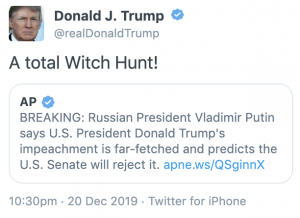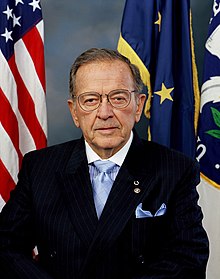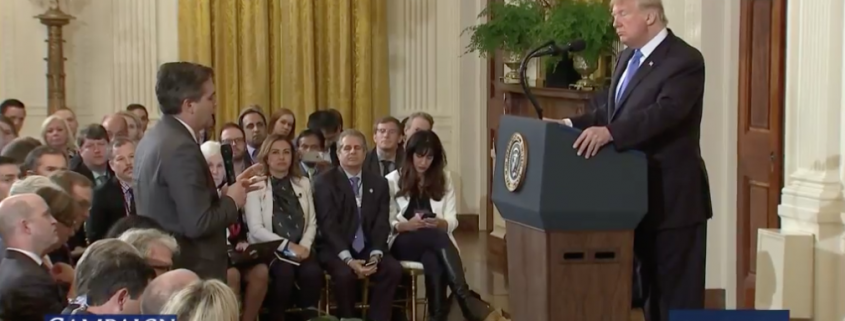Yesterday, Brazil charged Glenn Greenwald as part of the criminal sim swapping group that also leaked The Intercept details of corruption in Sérgio Moro’s efforts to put Lula in prison.
In a criminal complaint made public on Tuesday, prosecutors in the capital, Brasília, accused Mr. Greenwald of being part of a “criminal organization” that hacked into the cellphones of several prosecutors and other public officials last year.
Here’s the indictment.
The indictment comes after a ruling, in December, that Glenn (whom Bolsonaro was already targeting in a financial investigation) could not be investigated.
Those reports led a Supreme Court justice, Gilmar Mendes, to issue an extraordinary order barring the federal police from investigating Mr. Greenwald’s role in the dissemination of the hacked messages.
Prosecutors on Tuesday said they abided by that order until they found audio messages which, they argued, implicated Mr. Greenwald in criminal activity.
Prosecutors have claimed that they were abiding by that order, which relied on a Brazilian law (which sounds like it’s akin to the Bartnicki decision in the US) that says journalists cannot be prosecuted for publishing stolen information. But they found recordings that — they claim — show Glenn was interacting with the hackers while they were engaged in their other crimes, and advised them to delete logs, which (the indictment argues) helped them evade prosecution.
Citing intercepted messages between Mr. Greenwald and the hackers, prosecutors say the journalist played a “clear role in facilitating the commission of a crime.”
For instance, prosecutors contend that Mr. Greenwald encouraged the hackers to delete archives that had already been shared with The Intercept Brasil, in order to cover their tracks.
Prosecutors also say that Mr. Greenwald was communicating with the hackers while they were actively monitoring private chats on Telegram, a messaging app. The complaint charged six other individuals, including four who were detained last year in connection with the cellphone hacking.
The indictment includes long excerpts of the discussion, which (if my combination of shitty Portuguese assisted by Google Translate is correct) they claim shows that, amid news that Moro had been hacked, the source of the Intercept’s files came to Glenn and admitted there were currently monitoring Telegraph channels in the period before the Intercept was going to publish and had a discussion about whether they had to keep the stuff leaked to the Intercept pertaining to corruption. Glenn was quite careful to note he wasn’t offering advice about what the hackers should do, but said they would keep their one copy in a safe place and so the hackers could do whatever they wanted with the stuff they had. Even in spite of Glenn’s clear statement that The Intercept had obtained the files long before the ongoing hacking, the Brazilian prosecutors claim this shows Glenn knew of ongoing hacking and then discussed deleting logs of the prior hacking, making him a co-conspirator.
Apparently, however, this same evidence had already been reviewed before the December ruling, meaning the government is reversing itself to be able to include Glenn in the charges. The government must first get the approval of the judge that issued the initial ruling to prosecute Glenn.
Let me start by saying that this is both an attack on the press and a fairly clear attempt at retaliation against a Jair Bolsonaro critic, part of a sustained attack on Glenn and his spouse, David Miranda. The press in the US has pretty loudly come out in support of Glenn, and no matter what you think of Glenn or his Russia denialism, Glenn deserves support on this issue.
The charges have led a lot of people to say that the charges are just like what is happening with Julian Assange. They are similar. But I think they are distinct, and it’s worth understanding the similarities and distinctions.
Before I do that, since I’ve been accused — because I report on what the prosecution of Joshua Schulte says — of being insufficiently critical of the existing charges against Assange, here’s a post where I talked about the danger of the first charge against Assange (conspiracy to hack information) and here’s one where I lay out how a number of the Assange charges are for publishing information. I don’t support the current charges against Assange, though I think some of Assange’s more recent actions pose closer calls.
Renewing old charges
In both cases, the government took evidence that had already been assessed — in Assange’s case, chat logs from 2010 that the Obama Administration had deemed were not distinguishable from stuff the NYT does, and in Glenn’s case, the recordings that police had already reviewed before the ruling that Glenn should not be investigated — and found reason to charge that hadn’t existed before. In Glenn’s case, that decision was made just weeks later, under the same Administration. In Assange’s case, that decision came by another Administration (one installed in part with WikiLeaks’ assistance), but also came after WikiLeaks engaged in several more leaks that had pissed off the US.
The US government has (Trump flunky efforts to pardon Assange notwithstanding) always hated Assange, but it’s unlikely he would have been charged without 1) the Vault 7 leak burned the CIA’s hacking ability to the ground and 2) an authoritarian Trump administration with a gripe against journalism generally. That said, it’s still not clear why, if DOJ wanted to go after Assange, they didn’t do it exclusively on actions (like extortion using CIA files) that were more distinguishable from journalism, unless the government plans to add such charges to show a pattern over time, one that culminated in the Vault 7 leaks.
Whereas with Glenn, this feels immediately personalized, an effort to keep looking at a leak that exposed Bolsonaro’s hypocrisy until charges could be invented.
The similar conspiracy charge
Where the two cases are most similar is the common charge: a conspiracy involving computer hacking. But even there, there are important differences.
Brazil is arguing (again, relying on my shitty Portuguese) that Glenn is part of the conspiracy his sources are being prosecuted for because in a conversation where he acknowledged that they were still engaged in criminal hacking, he talked about deleting logs. That is, they’re not arguing that he tried to take part in the hacking. They’re arguing that he helped the ongoing hacking by helping the hackers evade discovery.
This is something that the government has shown WikiLeaks to do, for example showing Assange discussing with Chelsea Manning about operational security. The government cites OpSec assistance in the directly comparable “Conspiracy to Commit Computer Intrusion” charged against Assange (count 18):
- It was part of the conspiracy that ASSANGE and Manning used the “Jabber” online chat service to collaborate on the acquisition and dissemination of the classified records, and to enter into the agreement to crack the password hash stored on United States Department of Defense computers connected to the Secret Internet Protocol Network.
- It was part of the conspiracy that ASSANGE and Manning took measures to conceal Manning as the source of the disclosure of classified records to WikiLeaks, including by removing usernames from the disclosed information and deleting chat logs between ASSANGE and Manning.
But those are described in the “manner and means” section of the conspiracy charge. The overt acts part, however, describes things more commonly described as hacking: Manning’s use of a Linux operating system to obtain Admin privileges, her sharing of a password hash, and Assange’s unsuccessful effort to crack it. That is, Assange is charged with taking an overt act that amounts to hacking, whereas Glenn is charged with advising a source to delete logs (notwithstanding the way Glenn, in very lawyerly fashion, made it clear that he wasn’t offering advice). The inclusion of OpSec in the manners and means is absolutely dangerous in the Assange indictment. But the government alleged something more to include him in a CFAA conspiracy, something not present in the charge against Glenn.
Assange is also charged with another conspiracy charge that reflects ongoing discussions to obtain more information. That’s distinguishable from Glenn’s charge in that Assange was talking about getting more information, whereas all Glenn is alleged to have done is have a discussion at a time he knew his source was committing other ongoing hacking unrelated to and long after obtaining the files he published. But the two conspiracies are similar insofar as the government in question holds a publisher/journalist accountable for continued communication with a source who is engaged in ongoing lawbreaking, but in Assange’s case that crime pertains to obtaining information for Assange, whereas with Glenn it involves an entirely different crime.
More — and in some way, more dangerous — charges against Assange
There’s no parallel between the charge against Glenn and the other charges against Assange, which are some of the most dangerous. As I’ve laid out, there are three theories of prosecution used against Assange:
- The attempt to hack to obtain additional classified information (described above, along with a charge tied to the things they were trying to obtain by cracking that password)
- A solicitation of specific files, some of which Manning sought out and provided
- The publication of three sets of informants names
The last of these is absolutely a charge for publishing information; that’s specifically what (with its contorted thinking) the charge against Glenn tries not to do.
The solicitation request is something both Brazil and the US attempt to insinuate about the Intercept for its advocacy of SecureDrop (which is now used by a slew of outlets). It’s also something that could easily be used to criminalize normal journalism.
The Brazilian charge against Glenn at least attempts to avoid criminalizing any of these things.
Espionage
Of course, that’s a big difference right away. Glenn is not accused of publishing anything classified. Assange is.
And Assange is charged in such a way that gives him liability for releasing classified information under the Espionage Act.
And that’s an added danger of the Assange charges. Thus far, Assange has been charged for leaks that Chelsea Manning has never backed off having a whistleblower interest in leaking (the broad use of State cables she leaked would support that, but that’s less true of the Afghan and Iraqi war logs). As such, Assange is being charged for something that could implicate any journalist publishing classified information.
That said, that could change. That’s why some of the arguments the government is making in the Schulte case are so noteworthy. They are preparing to rely on precedents used for organized crime to argue that, in part because he leaked to WikiLeaks, Schulte intended to harm the US. To the extent that they substantiate that motive, it would put Schulte solidly in the position that the Espionage was designed for. But the government seems to be preparing to apply that argument to WikiLeaks more broadly.
Extradition and international legal process
Finally, though some folks appear to be forgetting this in demanding that the US get involved in Glenn’s case, Glenn was charged as a resident of Brazil for actions taken in Brazil. Assange was charged as an Australian citizen for actions taken in the UK affecting the US government, which has asked the Brits to extradite him for charges (Espionage) that fit under the kind of political crime that often will not merit extradition. Of course, Assange is fighting against Five Eyes governments that, post Vault 7 leak, are likely far less interested in such legal distinctions. Indeed, I suspect that’s one of the reasons the US charged Assange for leaking informant identities; some of those informants were British sources as much as American ones.
Still, the extradition gives Assange a preliminary opportunity to fight these charges, not just because it is a political crime and his health is at risk, but also based on claims (the validity of which I’ve been meaning to unpack) that he was spied on in the Embassy in ways that violate EU if not UK law.
Glenn, however, is facing charges in the increasingly authoritarian country he lives in with his spouse and children. So even though, as I understand it, the high court will have to approve his charges before he is actually prosecuted, Glenn still faces political retaliation within his resident country.
Update: Here’s a Mathew Ingram piece doing similar, though less granular, analysis.



